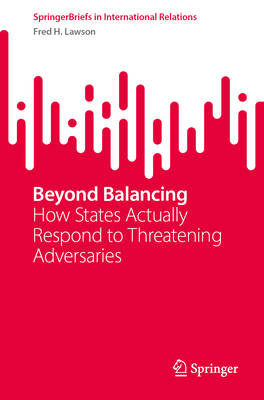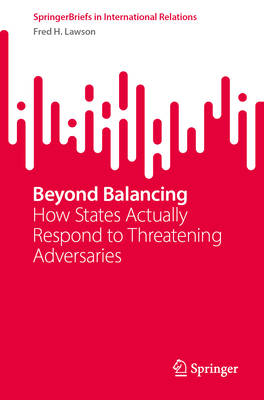
- Afhalen na 1 uur in een winkel met voorraad
- Gratis thuislevering in België vanaf € 30
- Ruim aanbod met 7 miljoen producten
- Afhalen na 1 uur in een winkel met voorraad
- Gratis thuislevering in België vanaf € 30
- Ruim aanbod met 7 miljoen producten
Zoeken
€ 48,45
+ 96 punten
Omschrijving
This Brief revisits the question of whether states tend to resist a threatening adversary. It begins by assessing one influential contribution to the debate that offers an elegant reformulation of the problem, and then advances a plausible alternative analytical framework. It surveys three situations in which several states faced the choice of mobilizing against or aligning with a prospective aggressor. In each case, proximity to the expansionist state and the clarity of the danger it posed to the existing order might well have prompted adjacent states to engage in balancing. The fact that balancing did not predominate in any of these situations challenges the orthodox view of how states respond to evident threats and compels a reconsideration of the circumstances under which bandwagoning is likely to occur in the anarchic international arena. Building on influential studies of bandwagoning in international politics, the volume reassesses states' responses to aggressive adversaries. It offers an alternative explanation for why states often--indeed, usually--choose not to resist aggressors, and illustrates this argument by revisiting East Asia in 1931 and Central and Eastern Europe in 1938. It also provides a new perspective on the reactions of the Arab Gulf states to the abrogation of the Joint Comprehensive Plan of Action.
Specificaties
Betrokkenen
- Auteur(s):
- Uitgeverij:
Inhoud
- Aantal bladzijden:
- 62
- Taal:
- Engels
- Reeks:
Eigenschappen
- Productcode (EAN):
- 9783032103291
- Verschijningsdatum:
- 9/11/2025
- Uitvoering:
- Paperback
- Formaat:
- Trade paperback (VS)
- Afmetingen:
- 156 mm x 228 mm
- Gewicht:
- 127 g

Alleen bij Standaard Boekhandel
+ 96 punten op je klantenkaart van Standaard Boekhandel
Beoordelingen
We publiceren alleen reviews die voldoen aan de voorwaarden voor reviews. Bekijk onze voorwaarden voor reviews.








